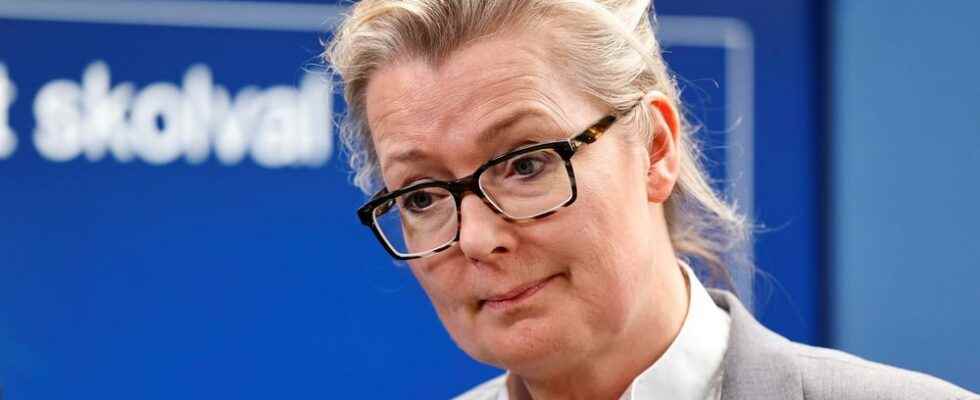One of many who reacted strongly to the information in DN was Minister of Education Lina Axelblom Kihlblom.
She is critical of the fact that Realgymnasiet in Trollhättan demands school fees for costs that the municipality believes the school does not have.
Instead of staying with their own horses and stables, they rent from external riding schools where they let the high school students ride school buses.
According to the municipality’s calculations in that case, it should not cost more than SEK 130,000 per student and year.
But Realgymnasiet has turned to the court and demands SEK 250,000, an amount that is calculated for schools that stick with animals and facilities. The rationale is that this is how the rules are designed.
– Even though I am no longer particularly surprised, I still get really pissed when things like this come up, says Minister of Education Lina Axelsson Kihlblom (S).
The problem is that we allow for-profit companies to buy and run Swedish schools, she says.
– It is the municipality’s politicians who will control and dispose of the tax money we spend on schools. But as long as we have schools where profit is a driving force, this will continue, says Lina Axelsson Kihlblom.
Can the concept of not sticking with one’s own animals be a way of streamlining that more people should use?
– If you want to learn about animals, it is good if you also get to meet animals. It is about students who go to a nature management school being able to get a job when they are finished. I have seen examples where it is believed that students should learn to take care of farm animals but get a guinea pig to sweeten with, says Lina Axelsson Kihlblom.
The Moderates have also reacted on the information in DN that Realgymnasiet demands tuition fees for costs that according to the municipality’s calculations do not have.
The party’s school policy spokesman Lars Hjälmered believes that the school’s funding system needs to be reviewed.
Securing the supply of skills to agriculture and the green industries is important for Sweden. Then it is central that the high school educations in the area are of high quality, he writes in an email to DN.
He assumes that the Swedish Schools Inspectorate will take a closer look at the information that has emerged.
– There is reason to review how nature management colleges are reimbursed, which DN’s review confirms, he says.
Even the Sweden Democrats School policy spokesman Patrick Reslow calls for clearer rules for school funding.
– The whole idea is to be close to animals and nature. Therefore, there should be a requirement to keep your own animals, he says.
He also sees a risk that students do not get enough internships to become employable, and that current rules allow actors to use the system in a way that risks ruining for serious schools.
The Center Party’s school policy spokesperson Fredrik Christensson highlights the Swedish Schools Inspectorate’s review, which shows large differences in the quality of schools.
– It is not acceptable and mainly affects students who have the right to high-quality education, he says
Christian Carlsson, who is the Christian Democrats’ school policy spokesperson, says that the information about Realgymnasiet “would have been laughable if it were not for the fact that it affects the students”.
– If the tuition fee is granted on incorrect grounds then the municipality should also be able to claim back paid-out funds, he writes.
Background
● Three years ago, Realgymnasiet moved into an old hospital in central Trollhättan.
● Realgymnasiet educates students in nature management with, among other things, horse keeping on the schedule – but without having stables and horses at school.
● Still, schools receive more than twice as much compensation as a regular school precisely because it costs so much to keep up with farm animals.
● In the autumn, the municipality reacted – and refused to pay the high amount.
● The issue will now be decided in the administrative court and raised in the Riksdag.
Show more
